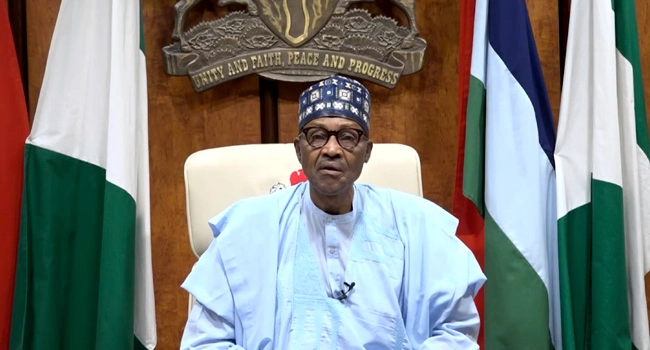Consider palliatives beyond cash transfers, CAN urges FG
The Christian Association of Nigeria on Friday called on the federal government to ensure that any stopgap fuel subsidy measures being considered go beyond cash transfers.
The FG, CAN said, should consider introducing mass transit across states to reduce the cost of transportation. According to CAN, the introduction of a mass transit system will have a profound multiplier effect.
“The stopgap fuel subsidy measures being considered by the government should go beyond cash transfers. The government should consider introducing mass transit across the states to reduce the cost of transportation. The multiplier effect of this will be profound.
“The government should take steps to reduce the price of fuel. These steps should include removing unnecessary levies and taxes on imported petroleum products, stabilizing the foreign exchange market, and returning our local refineries to functional and efficient use,” CAN said.
While appealing to Nigerians for more patience, CAN also urged the government to take urgent action to alleviate the suffering of citizens.
CAN President Daniel Okoh, who said so in a statement issued in Abuja, said Nigerians should “work together to build an economy that is inclusive, resilient and provides opportunities for every Nigerian to prosper.”
According to him, the CAN believes that the trajectory that the current administration has set for itself from the beginning to ensure inclusive governance deserves praise.
The statement reads: "The national balance seen in the recent appointment of service chiefs is heartening and reassuring that every segment of Nigerian society is critical to the Nigerian project.
“The Christian Association of Nigeria therefore commends the administration of President Bola Ahmed Tinubu for its commitment to building a united, peaceful and progressive Nigeria.
"Given the massive corruption that had characterized the fuel subsidy regime over the years, there was a general consensus that the removal of fuel subsidies had become inevitable if the Nigerian economy was to grow sustainably. However, it was also generally agreed that it must be done in such a way that Nigerians are not subjected to untold hardship. In other words, what is idealistic must be balanced with what is realistic.
“Against the backdrop of recent unprecedented fuel price hikes and alarming inflation, the National Leadership of the Christian Association of Nigeria wishes to express its deepest concern over the current hardships facing Nigerians and calls for immediate action to alleviate the situation.
"As Nigerians tried to adjust to the initial increase in the price of fuel to 540 naira and its subsequent effect on the cost of transport, food, goods and services, and the general cost of living, another hike alluding to market forces took the price to 617 naira.
"This has placed a huge burden on the already struggling masses, further widening the gap between rich and poor and greatly eroding the purchasing power of ordinary citizens, and making it extremely difficult for them to afford the basic necessities of life.
"The situation is simply unbearable for millions of Nigerians who were already suffering from poverty. While the CAN recognizes the complex and difficult decisions that the government must make to manage the country's economy, there is an urgent need to prioritize measures that will alleviate rather than aggravate the level of poverty and hardship of Nigerians. It is therefore imperative that economic policies are formulated and implemented with utmost care and taking into account the difficulties faced by Nigerians.
"We therefore call on the government to urgently consider the following recommendations, among others:
“The government should engage with key stakeholders in meaningful dialogue to explore lasting solutions to the current situation. It is relevant to develop comprehensive economic policies that promote inclusive growth, job creation and social well-being.
"The government should focus on diversifying the economy, reducing reliance on volatile commodities, and promoting investment in sectors that can create sustainable employment opportunities. This will not only build economic resilience, but also contribute to the general well-being of citizens.
“While we agree that there is no gain without pain, the pain need not be unbearable. Therefore, we again urge the government to consider the impact of its policies on the most vulnerable segments of society and ensure that they are not disproportionately overburdened and subjected to unnecessary hardship.
"The government must listen to the concerns of the Nigerian people and implement sound economic policies that prioritize the welfare of all citizens...

The Christian Association of Nigeria on Friday called on the federal government to ensure that any stopgap fuel subsidy measures being considered go beyond cash transfers.
The FG, CAN said, should consider introducing mass transit across states to reduce the cost of transportation. According to CAN, the introduction of a mass transit system will have a profound multiplier effect.
“The stopgap fuel subsidy measures being considered by the government should go beyond cash transfers. The government should consider introducing mass transit across the states to reduce the cost of transportation. The multiplier effect of this will be profound.
“The government should take steps to reduce the price of fuel. These steps should include removing unnecessary levies and taxes on imported petroleum products, stabilizing the foreign exchange market, and returning our local refineries to functional and efficient use,” CAN said.
While appealing to Nigerians for more patience, CAN also urged the government to take urgent action to alleviate the suffering of citizens.
CAN President Daniel Okoh, who said so in a statement issued in Abuja, said Nigerians should “work together to build an economy that is inclusive, resilient and provides opportunities for every Nigerian to prosper.”
According to him, the CAN believes that the trajectory that the current administration has set for itself from the beginning to ensure inclusive governance deserves praise.
The statement reads: "The national balance seen in the recent appointment of service chiefs is heartening and reassuring that every segment of Nigerian society is critical to the Nigerian project.
“The Christian Association of Nigeria therefore commends the administration of President Bola Ahmed Tinubu for its commitment to building a united, peaceful and progressive Nigeria.
"Given the massive corruption that had characterized the fuel subsidy regime over the years, there was a general consensus that the removal of fuel subsidies had become inevitable if the Nigerian economy was to grow sustainably. However, it was also generally agreed that it must be done in such a way that Nigerians are not subjected to untold hardship. In other words, what is idealistic must be balanced with what is realistic.
“Against the backdrop of recent unprecedented fuel price hikes and alarming inflation, the National Leadership of the Christian Association of Nigeria wishes to express its deepest concern over the current hardships facing Nigerians and calls for immediate action to alleviate the situation.
"As Nigerians tried to adjust to the initial increase in the price of fuel to 540 naira and its subsequent effect on the cost of transport, food, goods and services, and the general cost of living, another hike alluding to market forces took the price to 617 naira.
"This has placed a huge burden on the already struggling masses, further widening the gap between rich and poor and greatly eroding the purchasing power of ordinary citizens, and making it extremely difficult for them to afford the basic necessities of life.
"The situation is simply unbearable for millions of Nigerians who were already suffering from poverty. While the CAN recognizes the complex and difficult decisions that the government must make to manage the country's economy, there is an urgent need to prioritize measures that will alleviate rather than aggravate the level of poverty and hardship of Nigerians. It is therefore imperative that economic policies are formulated and implemented with utmost care and taking into account the difficulties faced by Nigerians.
"We therefore call on the government to urgently consider the following recommendations, among others:
“The government should engage with key stakeholders in meaningful dialogue to explore lasting solutions to the current situation. It is relevant to develop comprehensive economic policies that promote inclusive growth, job creation and social well-being.
"The government should focus on diversifying the economy, reducing reliance on volatile commodities, and promoting investment in sectors that can create sustainable employment opportunities. This will not only build economic resilience, but also contribute to the general well-being of citizens.
“While we agree that there is no gain without pain, the pain need not be unbearable. Therefore, we again urge the government to consider the impact of its policies on the most vulnerable segments of society and ensure that they are not disproportionately overburdened and subjected to unnecessary hardship.
"The government must listen to the concerns of the Nigerian people and implement sound economic policies that prioritize the welfare of all citizens...
What's Your Reaction?






















